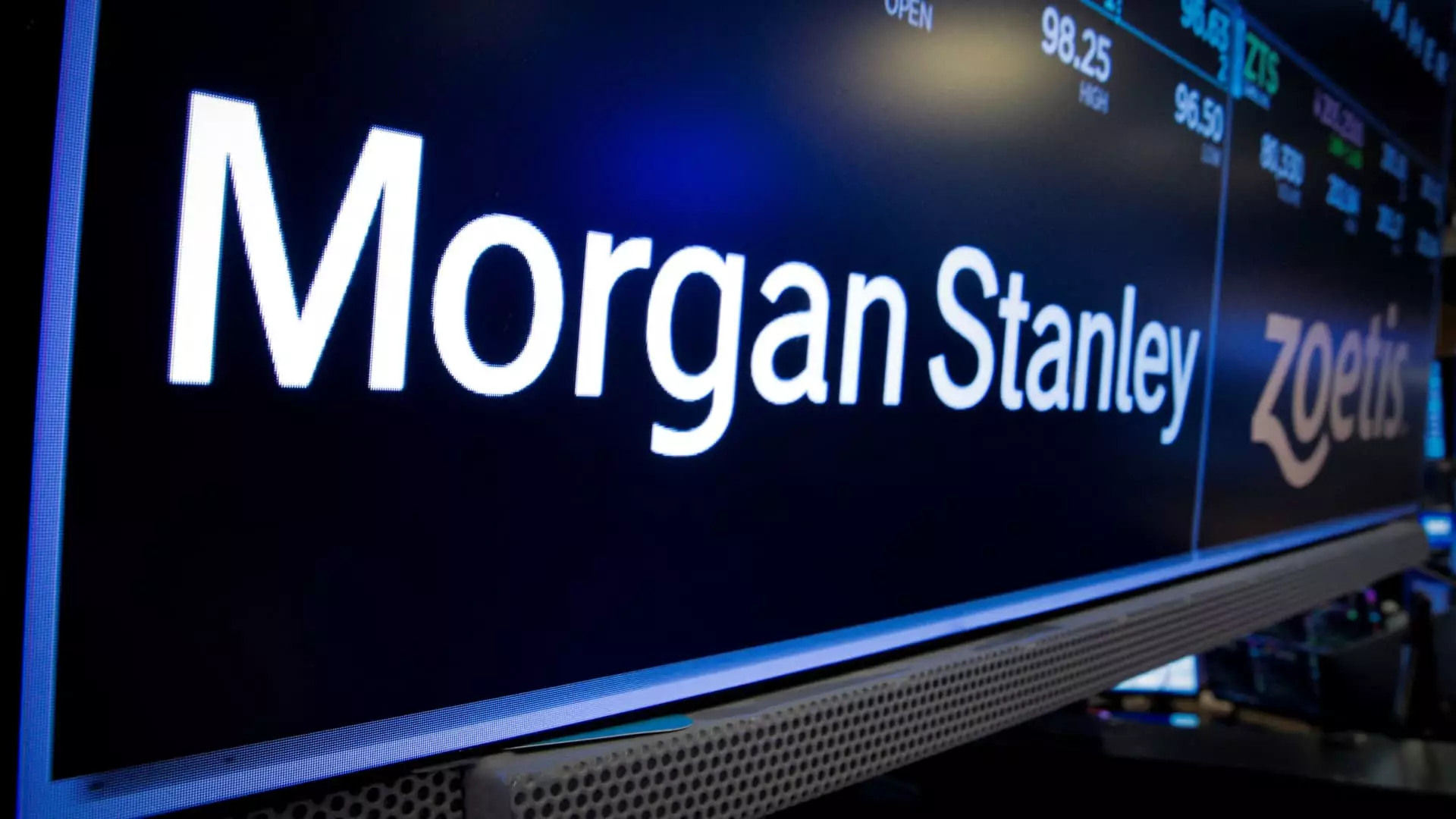In an era defined by rapid technological evolution, Morgan Stanley has taken significant strides in integrating artificial intelligence (AI) into its investment banking and trading operations. Following its successful introduction of an AI assistant in early 2023, the firm has further enhanced its capabilities with a new tool known as AskResearchGPT. This generative AI tool, powered by OpenAI’s advanced technology, is designed specifically for investment advisors and research analysts, marking a pivotal moment for the intersection of finance and artificial intelligence.
The arrival of generative AI tools such as AskResearchGPT is revolutionary. It primarily functions by allowing professionals at Morgan Stanley to efficiently sift through an enormous volume of data—over 70,000 reports generated every year. With this AI-driven assistant, answering complex queries on stocks, commodities, and societal trends becomes not just feasible but streamlined. Katy Huberty, Morgan Stanley’s global director of research, emphasizes its transformative impact on productivity, noting that it enables employees to access premium insights rapidly and effectively.
Wall Street firms have increasingly recognized the potential of generative AI tools, with notable players like JPMorgan Chase also extensively deploying similar gamified technology across their workforce. Current estimates suggest that almost half of Morgan Stanley’s 80,000 employees actively utilize these cutting-edge tools, while JPMorgan reportedly claims that about 60% of its workforce operates within a structure involving OpenAI’s applications. This rapid uptake underscores a growing awareness and endorsement of generative AI technologies across the financial sector.
OpenAI, founded in San Francisco, stands at the forefront of this AI revolution, bolstered by significant financial backing and a clear focus on banking applications. As Pierre Buhler, a consultant at SSA & Co., points out, OpenAI has carved out a crucial lead in market penetration, although this nascent industry is still in its early stages. The competitive landscape is expected to broaden, with players like Anthropic likely to gain traction over time.
The introduction of AskResearchGPT reflects a decisive shift in how financial analysts and client-facing professionals operate. Traditionally, responding to client inquiries involved a tedious process of making calls or sending emails to research teams. Now, employees are able to leverage the power of AskResearchGPT to obtain answers with remarkable efficiency. The tool has led to a threefold increase in the number of questions asked by staff, highlighting its effectiveness over prior AI alternatives used by the firm since 2017.
Sales professionals benefit immensely from this innovation, finding that it drastically reduces the time required to respond to client queries. Huberty explains that using AskResearchGPT allows salespeople to answer questions in one-tenth of the time, fundamentally changing client interaction dynamics within the firm. This enhanced efficiency is likely to lead to improved client relationships and potentially better investment outcomes.
In an impressive demonstration of its capabilities, AskResearchGPT effectively summarized Morgan Stanley’s investment outlook on various topics, including copper, Nvidia, and complex data center logistics. It showcased not only its proficiency in understanding intricate industry-specific jargon but also its ability to present relevant charts and links to source material, further underscoring its practical applicability in real-world scenarios.
Morgan Stanley’s ambition to enhance the productivity levels with generative AI tools is evident, as the firm aims to increase the adoption of AskResearchGPT among its workforce. By embedding the tool within common software platforms like Microsoft Teams and Outlook, Morgan Stanley ensures that the resource is readily available, facilitating an integrative approach to research-driven decision-making.
As financial institutions increasingly adapt to the capabilities that generative AI provides, it is clear that tools like AskResearchGPT are not mere enhancements but foundational changes in operational strategy. In a landscape that is ever more data-driven, the ability of financial advisors and analysts to access critical insights quickly might just spell the difference between success and mediocrity in investment banking. The implications of such advancements hint at a future where AI-driven tools will become as indispensable as financial models and market analyses, proving that the synergy between finance and artificial intelligence continues to grow tenfold.

